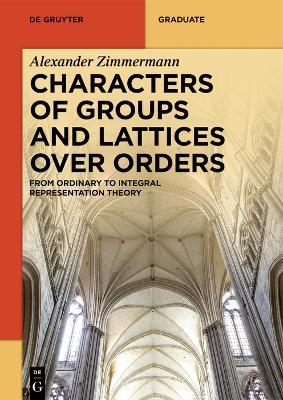De Gruyter Textbook
1 total work
This is the fi rst textbook leading coherently from classical character theory to the theory of lattices over orders and integral representations of fi nite groups. Character theory is developed in a highly pedagogical way including many examples and exercises covering at once the fi rst defi nitions up to Clifford theory, Brauer's induction theorem and the splitting fi eld theorem, as well as self-dual simple modules allowing bilinear forms. This latter part is done step by step using the approach given by Sin and Willems. Dirichlet characters and Dirichlet's result on primes in arithmetic progressions are given as an application. Examples of integral representations of fi nite groups are already detailed at a quite early stage where appropriate, so that the more systematic treatment of lattices over orders is natural. After that, the necessary number theory and homological algebra is developed as far as needed. Maximal as well as hereditary orders are introduced and the Auslander- Buchsbaum theorem is proved. The Jordan-Zassenhaus theorem on the fi niteness of lattices in a given vector space is fully proved. Then the development and properties of class groups of orders is a fi rst focus. As a further highlight Swan's example of a stably free but not free ideal over the integral group ring of the generalised quaternion group of order 32 is developed in great detail.
A student friendly introduction to ordinary representation theory
Many examples and exercises, including solutions for some of them, make the book well suited for self-study
Leads coherently from ordinary character theory to the integral representation theory of lattices over orders
Several topics appear for the fi rst time in a textbook, such as Sin-Willems' approach to self-dual simple modules and Swan's example of a stably free non free ideal.
A student friendly introduction to ordinary representation theory
Many examples and exercises, including solutions for some of them, make the book well suited for self-study
Leads coherently from ordinary character theory to the integral representation theory of lattices over orders
Several topics appear for the fi rst time in a textbook, such as Sin-Willems' approach to self-dual simple modules and Swan's example of a stably free non free ideal.
